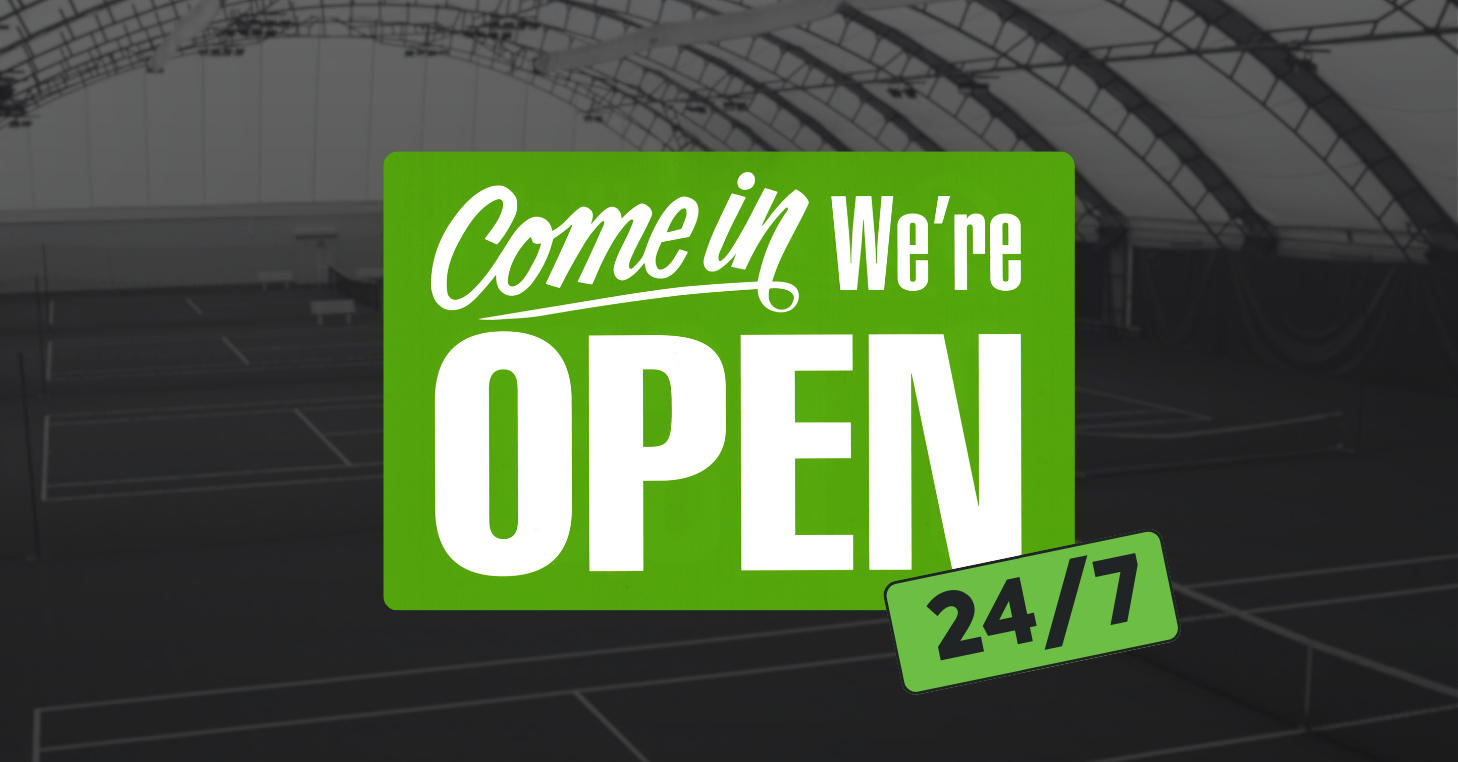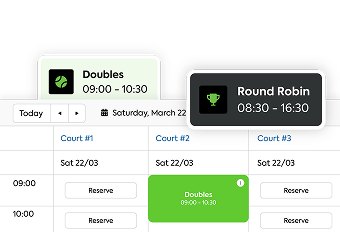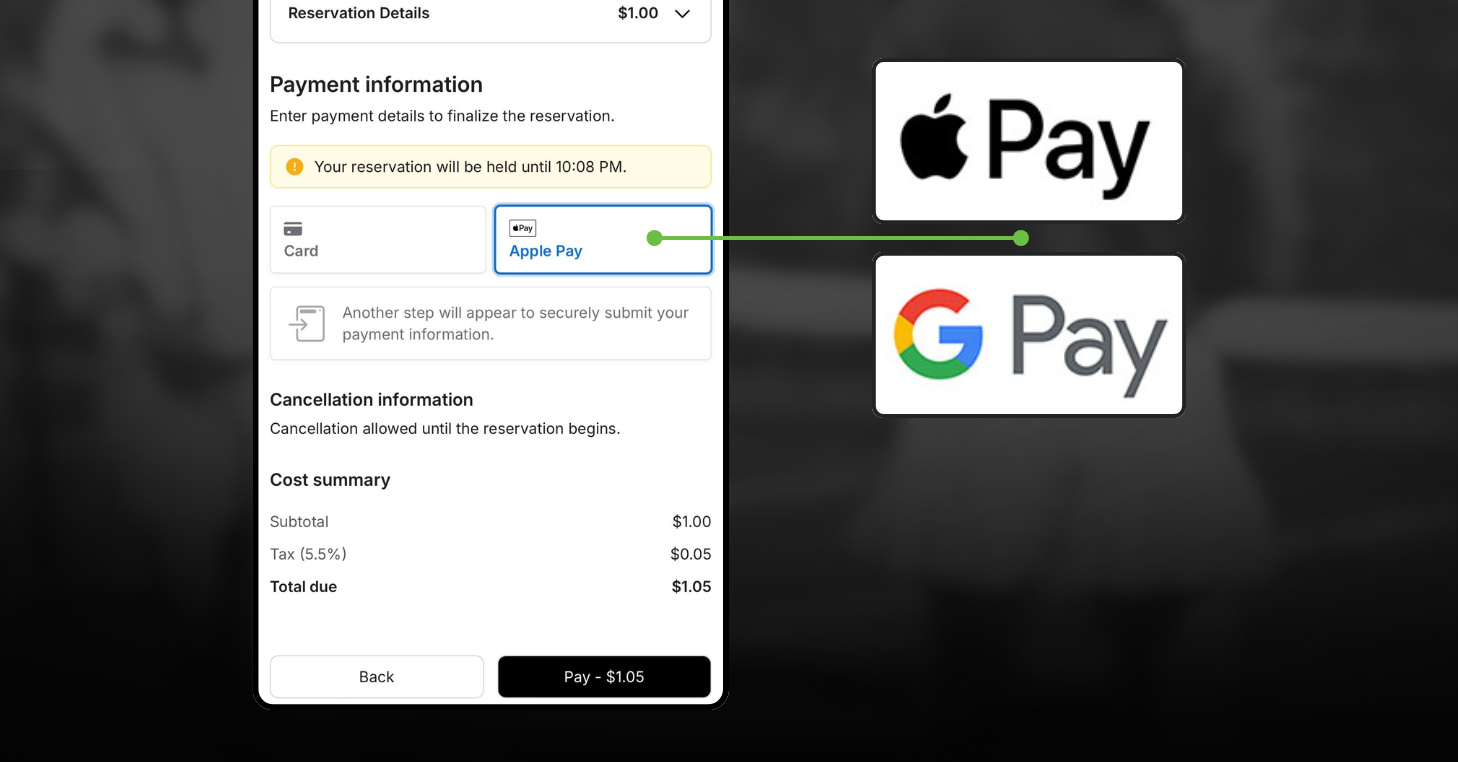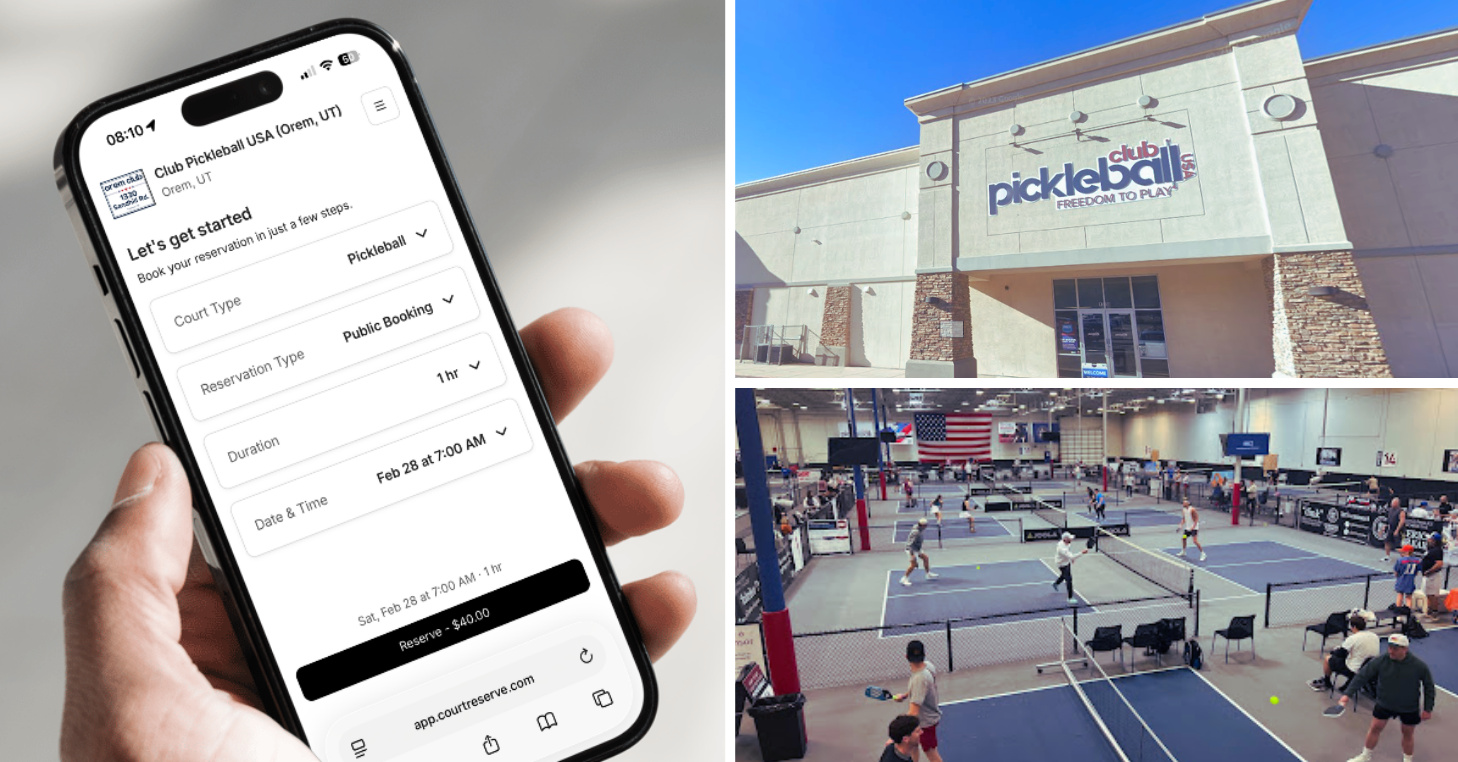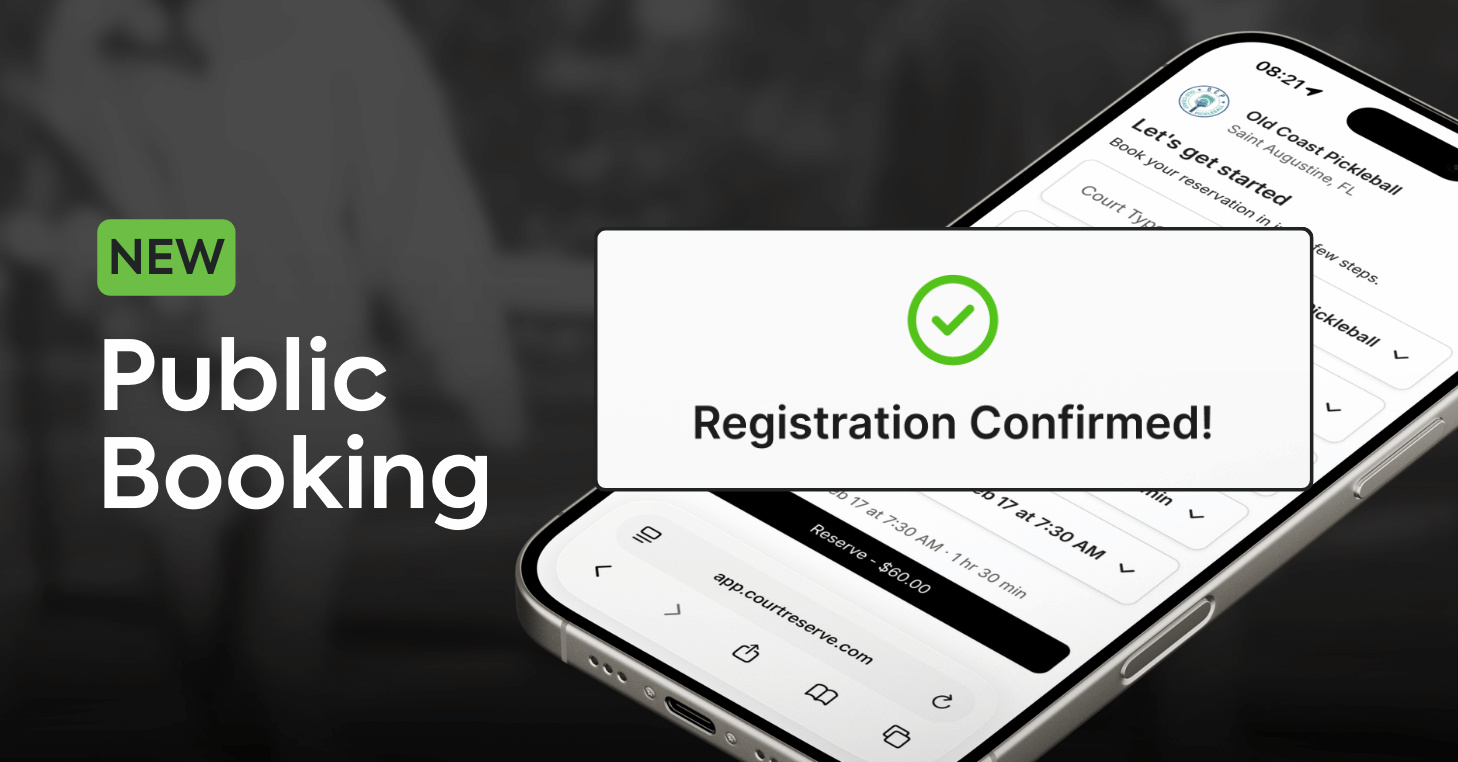The biggest competition your racquet and paddle club faces is your players’ free time. If your courts aren’t available when they want to play, they’ll find somewhere else to go.
That growing demand for flexibility is pushing clubs to expand access beyond traditional hours. And for tennis and pickleball facilities making the shift, the payoff is clear: increased bookings, fuller courts, and steadier revenue — all without the added payroll costs.
But making after-hours access or unstaffed facilities work takes planning. From access control to maintenance schedules, the right systems and policies are what keep your operations safe and profitable.
Here’s what you need to know.
Core components of a 24/7 racquet club or autonomous facility
Running a club without staff on-site requires the right mix of technology, policies, and processes working together. Think of these as the building blocks that make extended access possible — each one solves a different operational challenge, from security to liability to maintenance.
Let’s break down the core components you should consider as you explore after-hours operations:
Automated bookings & payments
Access control
Security cameras & video monitoring
Utilities & energy management
Attendance tracking
After-hours policies & waivers
Routine maintenance & cleaning
Reporting & club health checks
Automated bookings & payments
Automation is the backbone of any 24/7 or unmanned racquet facility. Without it, operations quickly become unmanageable.
That’s why many clubs rely on a court reservation system to take care of the basics: scheduling courts, managing reservations, processing payments, issuing refunds, sending notifications, and more.
Players get the convenience of booking and paying on their schedule (whether it’s 6 a.m. or midnight), while operators gain accurate records, steady cash flow, and consistent processes without extra admin work.
Having a platform like this in place is the first step in making 24-hour access more than an idea — but an operation that actually works.
Access control
When you extend hours or run a facility without staff on-site, the front door becomes your first line of defense. Leaving it unlocked isn’t an option — and traditional keys can be copied or shared too easily.
Access control gives clubs a smarter way to manage entry. Instead of keys, players use a PIN code, mobile pass, or key fob. On their own, these remote entry systems limit access to people you’ve pre-approved.
When connected to your club management platform through integrations like Brivo or RemoteLock, it can go a step further — verifying that a player has an active reservation before unlocking.
The payoff is simple: a secure facility that runs itself after hours, and peace of mind knowing every person inside belongs there.
Access Control Systems
byu/ShelbyCourtReserve inCourtReserve
Security cameras & video monitoring
Security cameras and video monitoring add another layer of protection.
Cameras positioned at entrances, exits, and on courts create a verifiable record of activity and act as a deterrent against misuse. Visible cameras discourage rule-breaking, while giving operators confidence that the facility is being used responsibly.
Most modern camera systems make it easy to check footage in real-time or pull recordings from a specific date and time when needed. With the right setup, cameras provide accountability, address liability risks, and give operators a clear window into what’s happening after hours.
Do you use the CourtReserve x Save My Play integration?
Save My Play cameras come with built-in security features, giving clubs another layer of protection. With this CourtReserve integration, motion-triggered recordings are saved to your Save My Play account, where admins can review past activity for up to two weeks. For clubs that want longer-term coverage, extended storage options are also available.
Utilities & energy management
Extended hours at your racquet sports club mean HVAC systems, lights, and other infrastructure will run without staff oversight. That’s why every club needs a plan for how these systems will operate after hours.
Common approaches include:
- Reservation-linked automation – Lights and HVAC switch on only when courts are booked.
- Always-on settings – Keep lights and AC running at a steady baseline around the clock.
- Motion sensors – Systems respond to movement and shut down automatically when no one’s present.
- Member responsibility – Rely on players to switch lights and systems off when they’re done.
The right choice depends on your facility’s setup and priorities. All of these approaches work — what matters is setting expectations and having a plan in place.
The end goal is consistency. Players should walk into a safe and comfortable environment, no matter what time they book.
Attendance tracking
Attendance tracking ensures there’s always a record to fall back on — whether you’re analyzing usage patterns, settling disputes, addressing liabilities, and so on.
Reservation platforms automatically record all bookings, and access control adds entry data — creating a verifiable trail of attendance activity. Some clubs also have a self-service kiosk at the front entrance, giving players a simple way to check in and confirm their reservation before heading to the courts.
Together, these tools provide operators with clear records of facility usage, including busy days and times, attendance habits, and trends over time. That visibility helps prevent unauthorized play (more on that later!), protects your courts, and generates data you can use to guide programming and allocate resources more effectively.
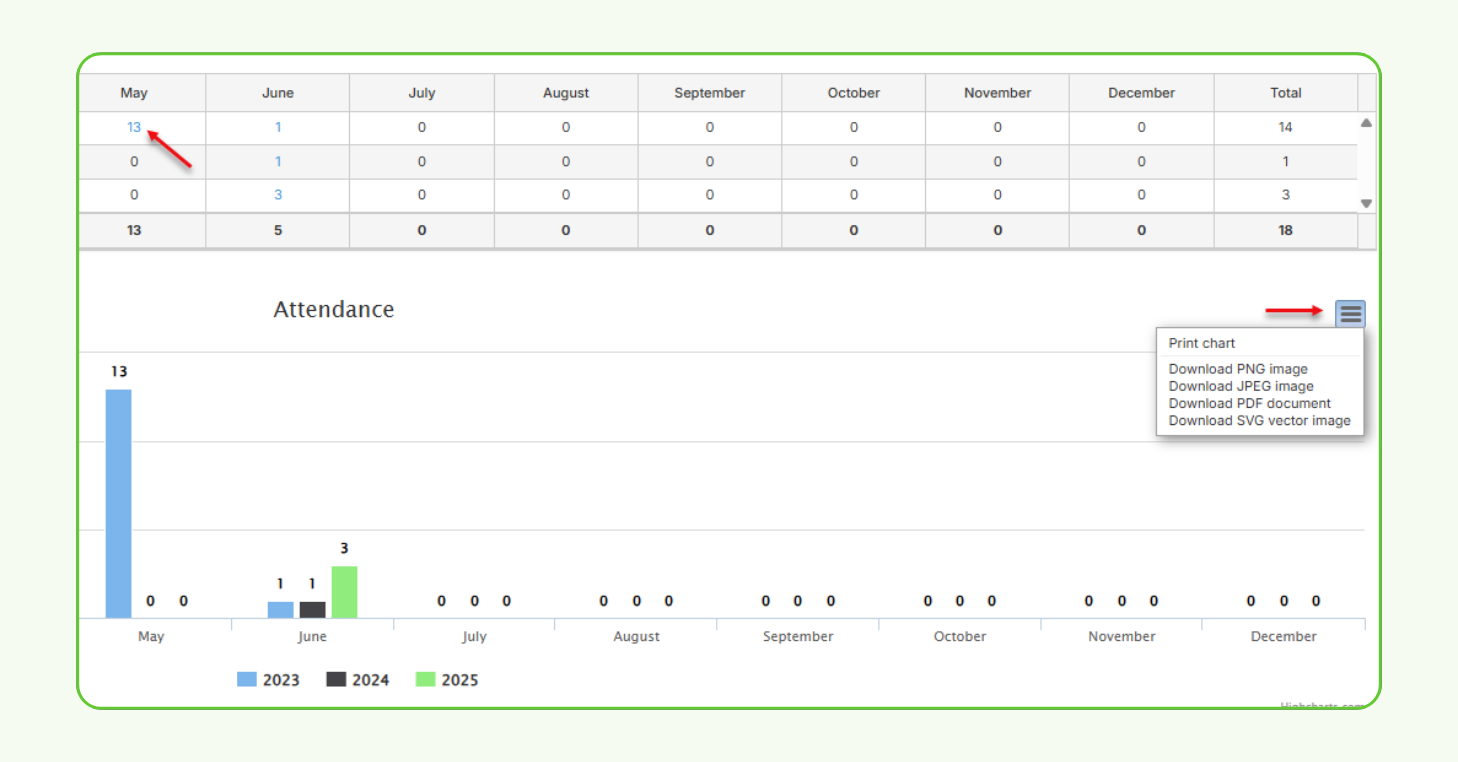
After-hours policies & waivers
Even with a high level of trust in your players, your club still needs guardrails. And this means making sure players are fully aware of the rules and responsibilities that come with extended access.
For this reason, waivers are a must-have for 24/7 or autonomous tennis or pickleball clubs. Digital waivers are easy to collect, simple to track, and enforceable if issues come up later. More importantly, they force players to acknowledge the risks of after-hours play and limit the club’s liability if someone gets hurt.
It’s also important to establish clear after-hours policies. Spelling these out upfront reduces risk, prevents misuse, and gives members the confidence to use the facility responsibly when staff aren’t present.
Consider creating policies for:
- Emergency situations – Draft an emergency action plan (EAP) (PDF). Post an after-hours contact number in plain sight, and make sure AEDs and first aid kits are accessible. Players should know exactly what to do and who to call if something happens when staff aren’t on-site.
- Time limits – Define how long players can use the courts and what happens if they stay longer. Fees, penalties, or even automatic light shutoffs are ways clubs can prevent players from stretching their booking into extra time.
- Damages – Determine how you’ll handle equipment or facility damage during after-hours play. Map out accountability in your policies, whether that means charging members for repairs, suspending access after repeated incidents, or both.
- Last-minute cancellations & no shows – Clearly outline your cancellation, no-show, and refund policies, including timeframes and fees. Use your club management platform to back them up with refund settings, cancellation reports, and stored payment profiles so charges can be applied when needed and revenue is protected.
Routine maintenance & cleaning
Running a 24/7 racquet facility means more wear and tear — and no one to tidy up between bookings. Without a plan for maintenance and cleaning, even the best-run club can quickly feel neglected.
The key here is prevention. Many clubs schedule cleaning crews for off-peak hours and set a cadence for routine inspections of courts, nets, and shared spaces.
Pair that with clear policies (like asking players to report spills or broken equipment through your website) and you’ll catch issues faster without relying on staff to be there all the time. This helps keep your facility safe, clean, and professional — no matter how often it’s used.
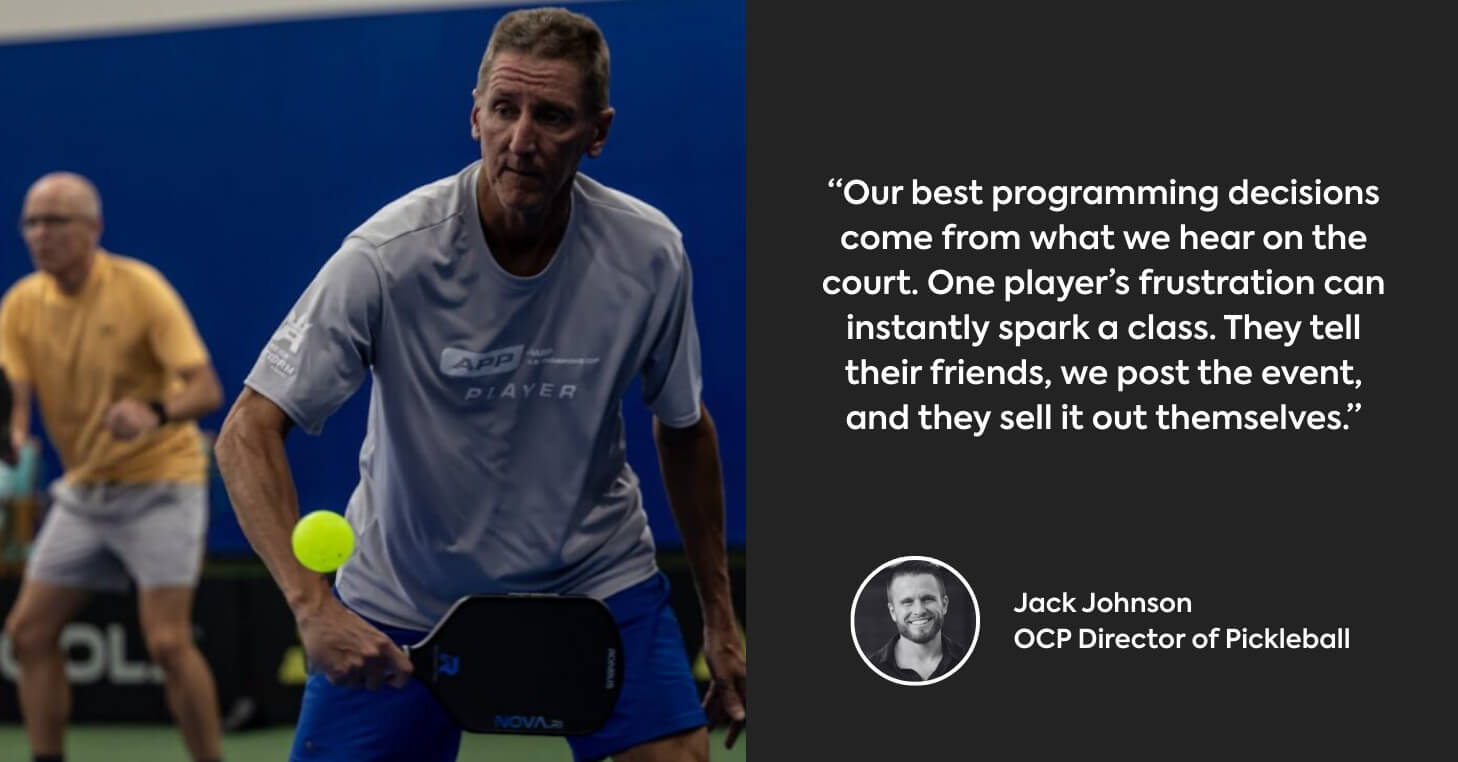
Reporting & club health checks
Routinely generating reports (financial, attendance, reservations, cancellations, and more) gives you visibility into how the facility is performing after hours. These reports serve as your eyes on the club, highlighting both issues and opportunities.
Health checks matter too. Reviewing audit logs, security camera activity, pending refunds, and other system details confirms everything is running smoothly and safeguards are working as intended.
Together, reporting and health checks give you confidence that your operation stays safe, efficient, and profitable around the clock.
2 real-world examples
Clubs are already proving extended access works in practice. Here are two examples of facilities that have embraced longer hours and built sustainable models around them.
Old Coast Pickleball (OCP)
Old Coast Pickleball has successfully introduced extended hours, opening courts early in the morning and keeping them available late into the night. By integrating access control with their club management system, they give players the flexibility to play on their schedule without requiring staff to be on site.
24/7 Golf
24/7 Golf is built entirely on the premise of around-the-clock access, operating as a fully automated facility. Members book simulator bays online, sign digital waivers, and enter with secure access credentials. By designing their operation around automation and trust, they’ve created a model that maximizes utilization while keeping costs predictable.
What are the benefits of after-hours access or an unstaffed racquet facility?
Once the right systems and policies are in place, a 24/7 or unstaffed tennis or pickleball facility delivers benefits that touch every part of your business:
- Increased revenue & profitability – Off-peak bookings turn empty courts into income, and lower staffing costs make profitability easier to reach.
- Lower labor costs – Automated entry and reservations cut early-morning, late-night, and overtime shifts, reducing payroll and operating expenses.
- Higher court utilization – Extended hours fill otherwise empty time slots, from early mornings to late nights and weekends.
- Improved player experience & retention – Flexible booking keeps members satisfied, loyal, and less likely to leave for competitors.
- Better usage visibility – Reservation logs, access control, and cameras create a verifiable digital trail for disputes, programming, and planning.
- Competitive advantage – Secure 24/7 access sets your club apart and attracts players who value flexibility.
Turning extended access into long-term value
Making the jump to 24/7 or automated access doesn’t have to mean exposing your tennis or pickleball club to risk. With the right mix of automation, access control, policies, and oversight, operations keep moving even when no one is on-site.
When done right, extended hours drive new revenue, boost court usage, and give players the flexibility and convenience they expect — all without sacrificing safety or oversight.
For clubs considering this move, the real opportunity is building a model that’s cost-efficient, player-friendly, and sustainable long-term. The demand is already here — the question is whether your systems and policies are ready to meet it.
Disclaimer: This article is for informational purposes only and is not a substitute for professional advice. Clubs should consult with qualified security and legal professionals to ensure their facilities meet all safety, liability, and compliance requirements.
